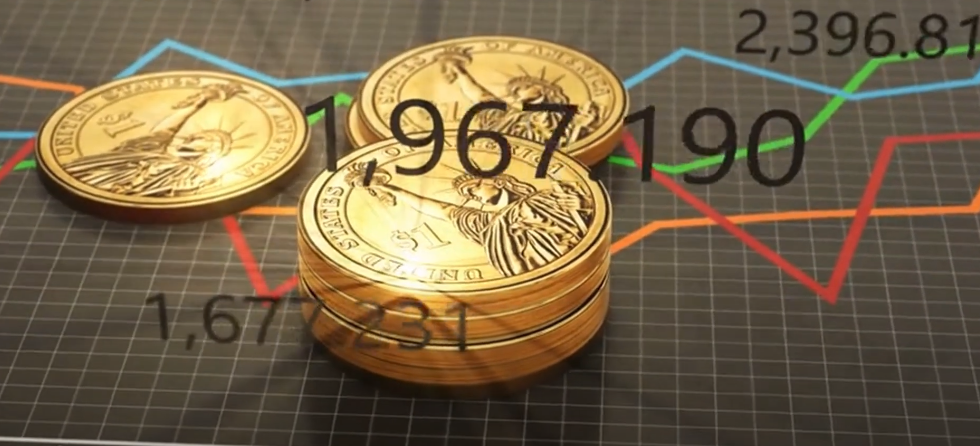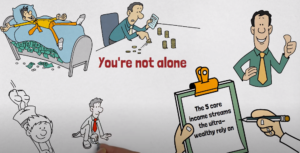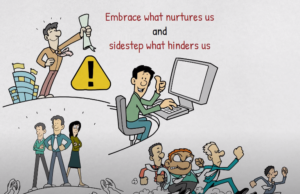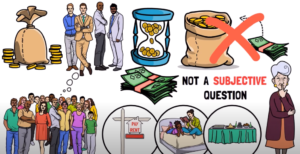Introduction
A few years back, I found myself consistently stuck in a highly frustrating situation where bills kept piling up and I had no money to settle them.
If you’ve ever experienced this, you’re likely aware of the immense stress it can bring. The good news is that over time, I successfully extricated myself from this predicament, and you can do it too.
In today’s article, I’ll share tips, tricks, and strategies to escape this situation and hopefully improve your personal finances. However, before delving into the topic, do me a favor, and now let’s get started.
Keep track of your spending.
Keep a record of your expenses. You’ve probably heard this advice countless times, and you’ll hear it again today because it works.
Chances are you’re not practicing it diligently. It should always be a top priority to ensure that every expenditure is meticulously documented.
The primary objective of tracking your expenses is to identify and eliminate inefficient spending habits in your financial life.
Furthermore, maintaining financial control and fostering better financial habits such as saving and investing stem from consistent expense tracking. As Peter Drucker wisely said, “If you can’t measure it, you can’t manage it.”
So here’s what you should do to regain control over your spending habits: Begin by analyzing your spending categories to pinpoint the most essential ones. You might even discover that you’ve been paying for a subscription you’re not using.
Most people consider cutting back on these non-essential expenses a prudent way to save money. You might also opt for less costly activities. Now that you can see where your money is going, aside from saving money, you’ll gain knowledge about topics you’re passionate about. So there’s not much to lose in this process.
Make a budget.
I recently realized why many people don’t have a budget. People often dread the paperwork required to establish a budget. While it is undeniably labor-intensive, it is unquestionably worthwhile. You should view budgeting from a different perspective: focus on the benefits and how it will enhance your life.
Once you establish a routine, ensure you stick to it. I found this to be the most effective approach. Don’t let the momentum slip away.
If you create a budget and file it away in a cabinet or on your bookshelf, it’s essentially useless. Keep it up-to-date and review it regularly. Digital apps and software can also make this task significantly easier. Many excellent free options are available online, easily found through a quick search.
Give yourself a limit on unbudgeted spending.
Purchasing something on a whim that you hadn’t budgeted for can be enjoyable and emotionally satisfying. We’ve all been there.
However, that initial emotional high can fade quickly, leaving you with impulsive purchases you neither need nor want.
In fact, this practice contradicts sound financial habits. The next time you’re at the mall, try following the 1% rule for spending money. This rule suggests waiting a day before buying anything that costs more than 1% of your annual income.
For instance, if you earn $60,000 per year, the rule dictates waiting a day before making a purchase exceeding $600.
Trigger the inner conflict of “Do I really need this?” versus “Do I want this?” The 24-hour cooling-off period allows you to reconsider your purchase. Why not take an additional day to contemplate if you truly need it? After 24 hours, you may no longer desire it.
Save for big purchases.
Seeing an enticing $4,000 advertisement for a magnificent 90-inch 8K TV may make you dream about the amazing content you can enjoy. However, that doesn’t mean you should immediately reach for your phone and credit card. That’s not a wise idea. Do you remember the 24-hour rule?
Experts suggest that if you truly want that extravagant TV, it’s best to use funds from your dedicated savings account for such purchases, not a credit card loan, unless you have a well-thought-out plan to promptly repay the money, which 99% of people don’t.
Saving for substantial or expensive purchases offers numerous advantages. You may be able to negotiate a lower price or, at the very least, secure better financing terms by saving and paying in cash.
The price may even drop. Furthermore, for major purchases, taking a loan might make more sense, especially for items with appreciating value, such as a home, or if it prevents you from depleting your savings or investment accounts. Paying cash for a costly TV, for example, could leave you with limited resources for daily expenses. Thus, it’s wise to start saving in advance to ensure your daily life remains unaffected.
Read books about finance.
The saying goes, “If you want to hide something, put it in a book.” Sadly, many people neglect valuable information contained in books.
However, this information has the potential to significantly enhance their lives if they take the time to read it. Learning is an ongoing process, and the more you engage in it, the sharper your skills become.
Financial literacy’s primary advantage is the ability to make sound financial decisions. It equips us with the knowledge and skills required to effectively manage our finances, including budgeting, saving, borrowing, and investing.
Consequently, we’re better positioned to achieve our financial goals and establish financial stability. It’s almost like having a superpower, and it empowers you to have control over your financial future.
Reduce your monthly expenses. Trimming your monthly expenditures is one of the simplest ways to gain control of your finances. While you might not be able to reduce certain fixed expenses, like rent or a car,












